🌍 Frontier Markets News, July 19th 2025
A weekly review of key news from global growth markets

Africa
African nations move to take ownership of their minerals
Mali’s government this week seized a ton of gold from a Barrick Mining site, deepening a dispute over ownership of the facility, the FT reports. Mali has been battling the Canadian mining firm since January when it also seized gold and took away the miner’s operational rights.
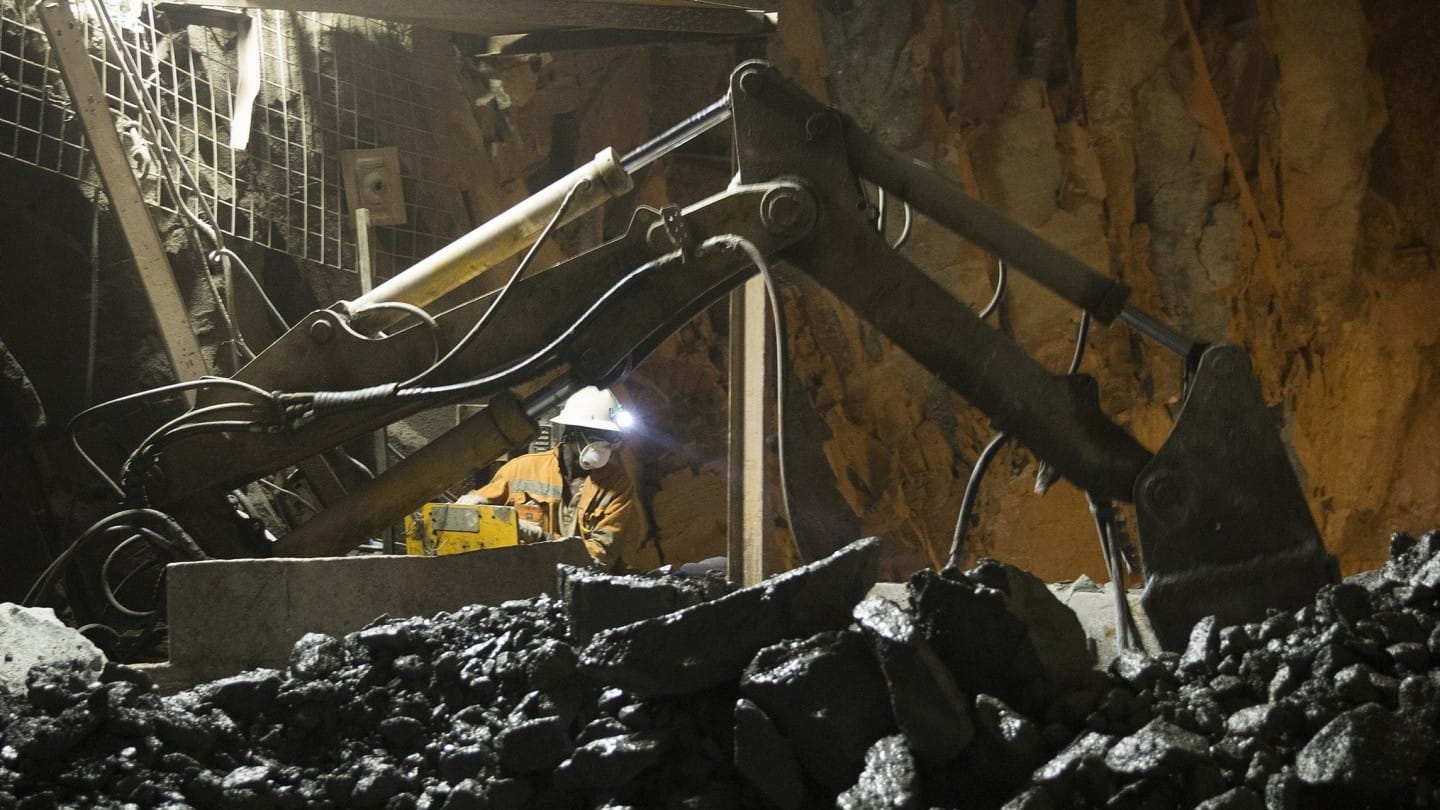
The move is part of a trend across the continent, with governments intensifying their efforts to take control of their natural resources, the newspaper reports. Niger last month announced it was nationalizing a uranium mine operated by French firm, Orano.
Others, including Ghana, Nigeria, Namibia and Botswana, have been trying to exert more control over raw minerals processing. Democratic Republic of Congo last month extended a ban on cobalt exports to drive up the prices and encourage local processing,
- Barrick plans $2bn expansion of its Zambia copper outfit (Business Insider Africa)
Analysts have warned that while Western companies must be mindful of host governments’ goals when engaging, the African nations also need to be careful not to deter investment outright.
S&P downgrades Senegal over growing debt burden
Ratings firm S&P Global this week downgraded Senegal’s credit to the lowest level since it first assessed the West African nation in 2000, Bloomberg reports.
S&P cited factors including a “more constrained budgetary position” and debt of 118% of the country’s GDP as reasons for the move. The current Bassirou Diomaye Faye administration found that the government of his predecessor, Macky Sall, had under-reported Senegal’s debt.
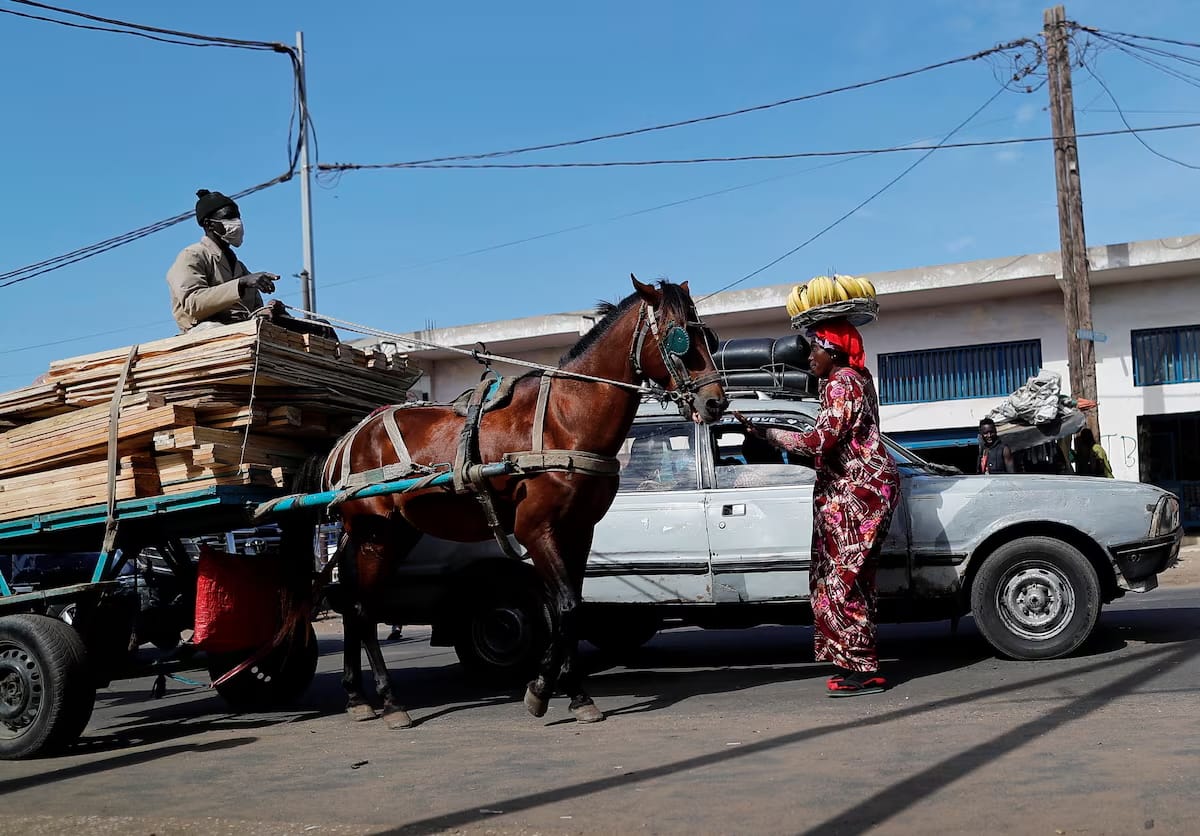
Debt levels across the region have soared, while interest rates also remain high, forcing several nations to trim costs even as social tensions over costs of living have been rising. The IMF said on Monday that debt concerns across sub-Saharan Africa are “mounting.”
ECOWAS growth holds steady despite multiple headwinds
The Economic Community of West African States (ECOWAS) is predicted to achieve 5.0% growth this year, only slightly down from last year’s 5.1%, Reuters reports. The bloc’s regional development bank, the ECOWAS Bank for Investment and Development, said growth would be undermined by a combination of external factors, including the global trade war and potential tariffs from the US.
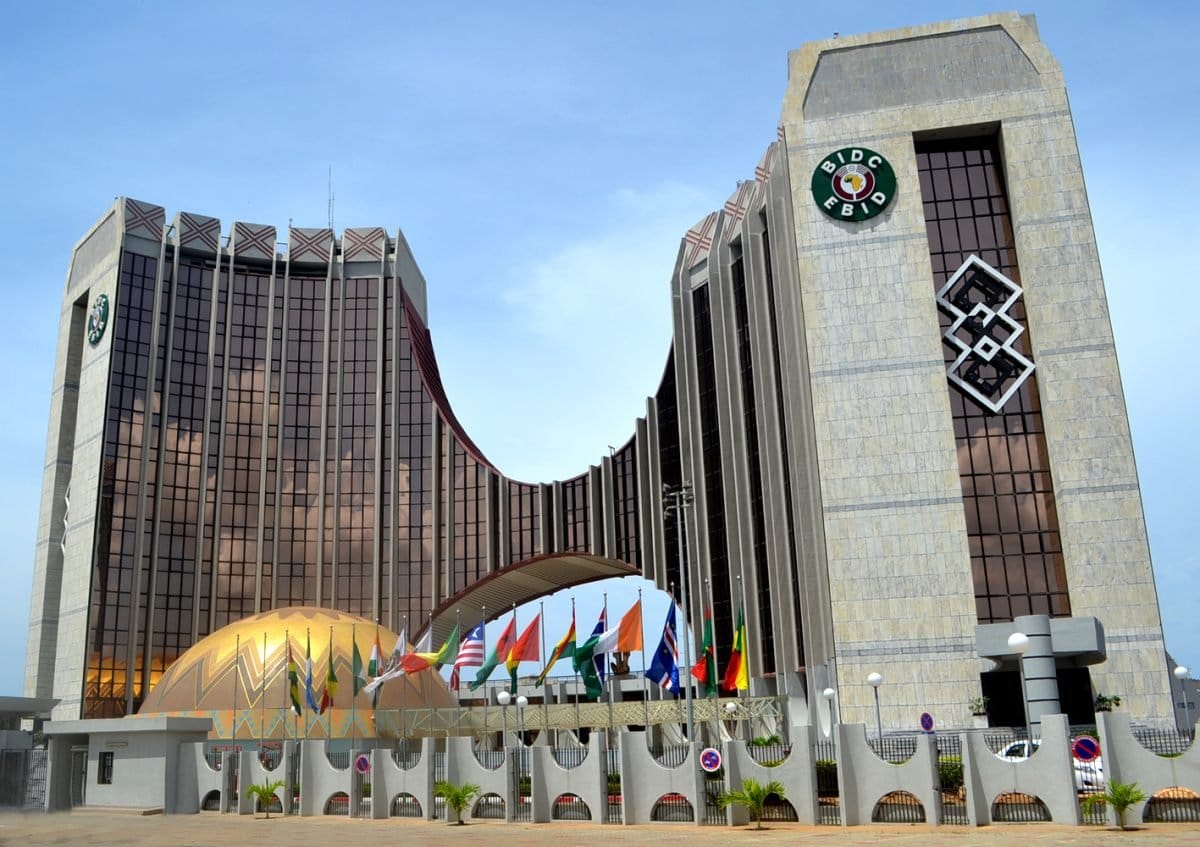
The earlier defection of three ECOWAS members—Burkina Faso, Mali and Niger—which quit the bloc to start their own rival alliance, will also drag on growth, the bank said. A reduction in remittances from the region’s citizens living in the US is also having an impact.
Despite the challenges, research by ISS Africa Futures suggests ECOWAS’ GDP could triple from current levels to reach $2 trillion by 2043.
Asia
Southeast Asia looks for Trump’s trade seal of approval
Countries across Southeast Asia scrambled this week to come up with trade offers that might persuade US President Donald Trump to reduce the tariffs he imposes on good from the region.
Indonesia was first to come up with a compelling arrangement. Trump said on Tuesday that Washington and Jakarta had come to terms on a deal that will see the US impose 19% tariffs on Indonesian goods, Politico reports. Indonesia will not impose tariffs on US goods, Trump said.
Thailand appears to be contemplating a similar strategy. A business group advising the Thai government told Bloomberg on Thursday that Bangkok is prepared to eliminate tariffs on 90% of US goods, and expects the US to impose a rate between 18% and 20%. Trump previously threatened Thailand with tariffs of 36%.
- Sri Lanka sends trade negotiators to Washington (DailyFT)
Malaysia is moving to address a different concern, announcing this week that exports of US-made AI chips will require specific trade permits, Reuters reports. American officials have previously complained that too many chips were leaking from Malaysia to China, which is subject to US export controls.
Exiled Bangladesh PM’s daughter ‘on leave’ from top regional WHO post
The daughter of Bangladesh’s exiled former prime minister Sheikh Hasina is “on leave” from her position leading the WHO’s Southeast Asia regional office following allegations of fraud, FT reports.
WHO Director-General Tedros Ghebreyesus announced the leave in an email to staff. Bangladesh has been investigating Hasina and members of her family since protests resulted in the former prime minister’s ouster last year.
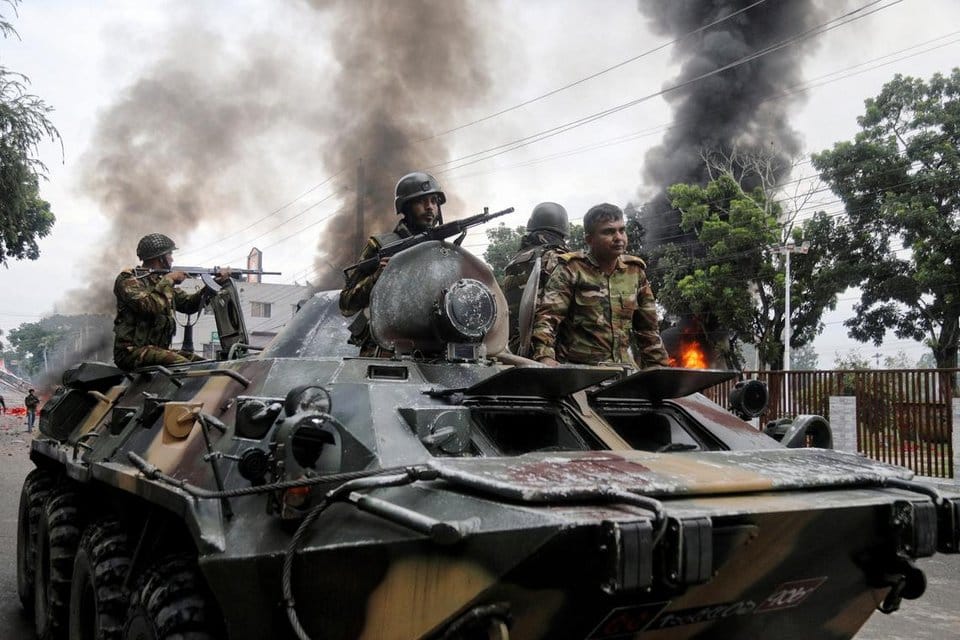
Violence continues to erupt between supporters of the former leader and those of Muhammad Yunus, the Nobel laureate who himself returned from exile to replace Hasina. This week, during an event to mark the anniversary of Hasina’s ouster, four people died after tensions flared between supporters of Hasina and law enforcement officers, the Straits Times reports.
Pakistan partners with El Salvador to promote crypto use
Pakistan and El Salvador this week signed an agreement to collaborate on the development of crypto-based financial and economic instruments, Arab News reports. Under the agreement, the two countries will formally cooperate in areas such as bitcoin mining and sovereign bitcoin reserves, according to a post on X by El Salvador’s National Bitcoin Office.
The deal followed a meeting in San Salvador between Bilal Bin Saqib, the head of Pakistan’s newly formed Crypto Council, and Salvadoran President Nayib Bukele. It comes as Pakistan embraces crypto after years of central bankers warning of risks associated with digital assets.
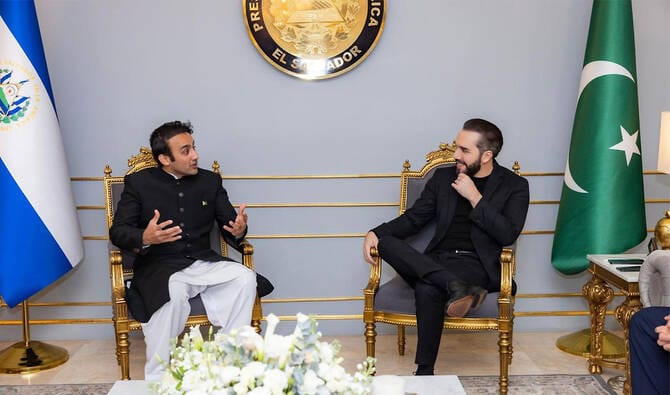
The arrangement could test Pakistan’s relationship with the IMF, which has agreed to lend the South Asian country $7 billion through 2027. In its dealings with El Salvador, which made bitcoin legal tender in 2021, the lender conditioned continued financing on a pause on bitcoin accumulation. El Salvador has continued buying, Bloomberg reports.
Middle East
Bahrain signs investment and nuclear energy deals with US after state visit
Bahrain’s Crown Prince Salman bin Hamad Al Khalifa met US President Donald Trump in Washington this week to cement some $17 billion worth of investment by Bahrain in US aerospace, technology, and manufacturing companies, Al Jazeera reports. The visit comes as Trump doubles down on tariffs as a negotiating tool, and underscores the tightening relationship between the US and countries in the Gulf Cooperation Council.
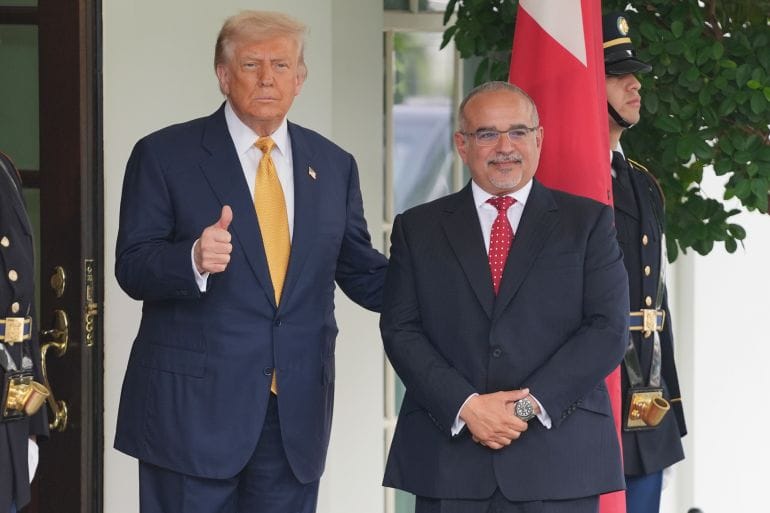
On Wednesday, Bahrain and the US signed a civil nuclear partnership, wherein the US will support Bahrain in building and operating small modular nuclear reactors. US officials said the agreement “builds on the well-tested partnership” between the two countries.
Bahrain is a longtime US ally, hosting American bases and serving as a diplomatic mediator in the region. Although not explicitly related to the tariff issue, Bahrain’s investment commitments this week are an example of the increasingly transactional nature of US foreign policy in the Middle East.
Saudi Arabia hires consultants to review Neom megaprojects
After a year of cost overruns and construction delays, Saudi Arabia this week hired consultants to review feasibility assessments of Neom, the tourism and renewable energy economic zone megaproject that is the flagship of its Vision 2030 economic diversification strategy, Bloomberg reports. Saudi officials overseeing Neom have stated that the review is standard practice, and that the country still sees it as a “strategic priority” despite reports of mismanagement and financial malpractice.
- Saudi Arabia switches to more focused investment approach, as PIF profitability-decline bites (FrontierView)
Lower oil prices, rising debt accumulation, and widening fiscal deficits have strained Saudi Arabia’s finances, putting pressure on projects such as Neom to deliver on promises of economic diversification. However, higher than expected construction costs and weak demand have cast doubt on the feasibility of its clean energy projects.
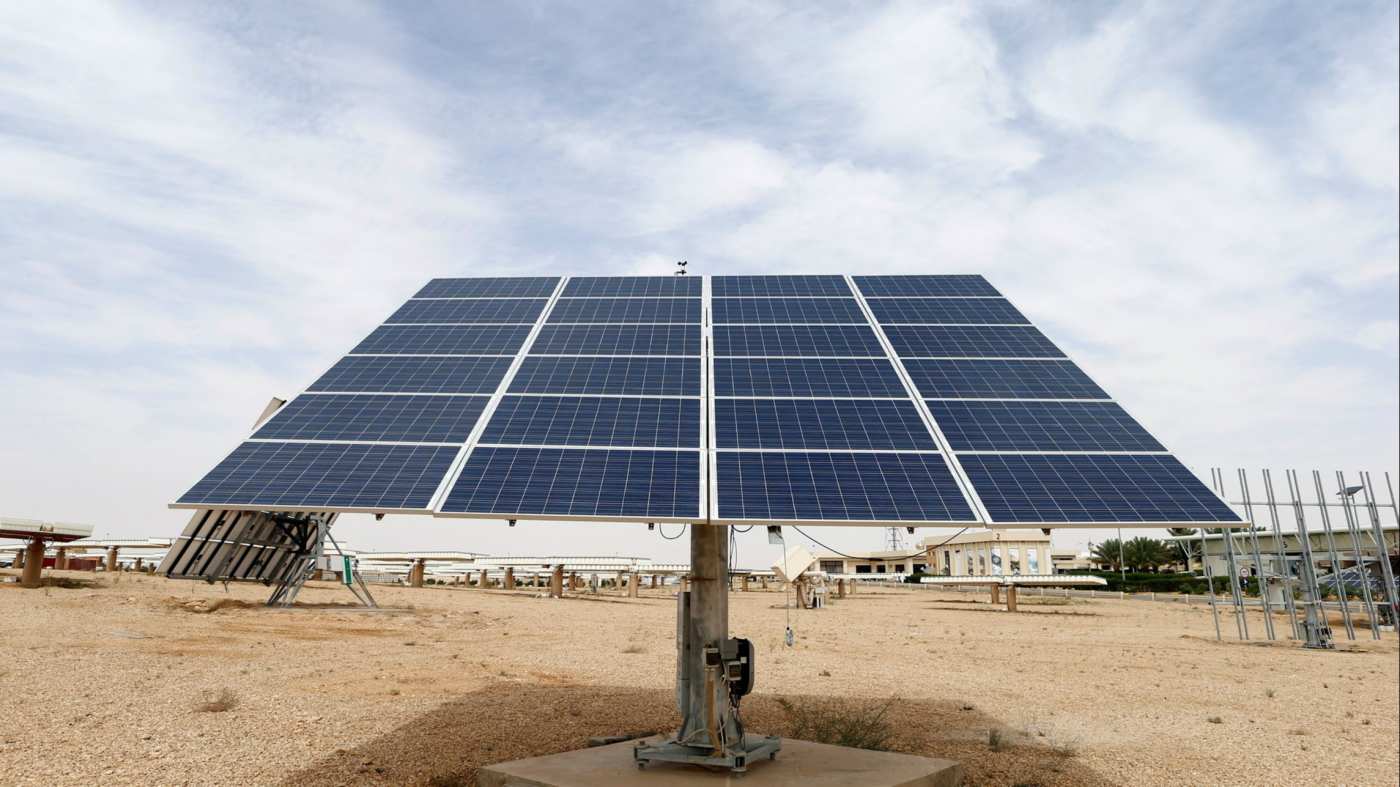
Despite the setbacks Saudi Arabia continues to deploy public investment to build renewable energy projects, this week announcing an $8 billion commitment by state-owned ACWA Power for 15 gigawatts of solar and wind capacity.
Europe
Ukraine shuffles government and announces public finance audit
Ukraine’s parliament confirmed economist Yuliia Svyrydenko as prime minister in a shakeup designed to strengthen the country’s position amid the ongoing conflict with Russia and evolving relations with the US, the Kyiv Independent reports. The 39-year-old former deputy PM replaces Denys Shmyhal, who simultaneously became defense minister, reflecting President Volodymyr Zelensky’s strategy to leverage experienced leadership.
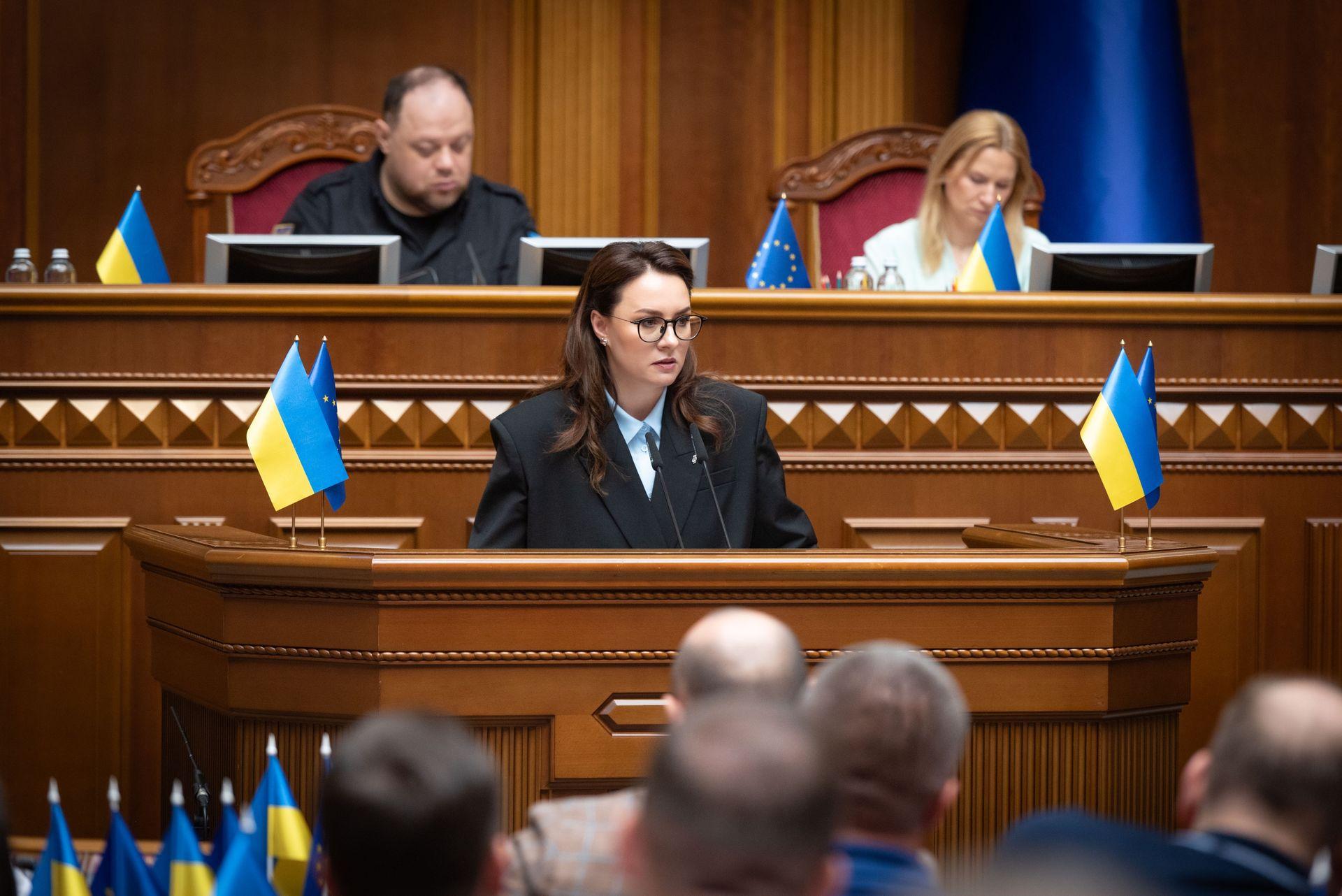
Svyrydenko plans to enhance fiscal discipline with a comprehensive public finance audit targeting “real savings” and accelerated privatizations.
The restructured government merges Economy, Ecology, and Agriculture ministries while dissolving Strategic Industries, transferring responsibilities to Defense to streamline operations.
EU budget boost brightens gloomy outlook for Poland
Polish companies believe the business environment is deteriorating, with rising raw material costs and regulatory uncertainty weighing on sentiment, according to a survey by the National Bank of Poland. But while cost pressures and high taxes remain a concern, business leaders are becoming more concerned about geopolitical uncertainty.
News that Poland stands to receive the largest share of the EU’s budget allocation for 2028-2034 is helping to dispel some of the gloom, Euronews reports. The funding targets migration, security, cohesion policy and agriculture, with the EU emphasizing defense spending through a fivefold military allocation increase aligning with Poland’s strategic priorities.
Latin America
Argentina gets boost from Trump backing in court battle and trade deal
The Trump administration this week supported Argentina’s appeal against a judgment requiring the South American country’s government to transfer its 51% stake in oil firm YPF to partially satisfy a $16.1 billion claim against it, MSN reports. The Justice Department intervention maintains a freeze on a previous court order, marking a diplomatic victory for President Javier Milei’s administration amid its cultivation of closer ties with Washington.
Argentina and the US are reportedly finalizing an agreement to exempt 100 Argentine products from Trump’s universal levies. The deal would place Buenos Aires alongside the UK, Vietnam, India and Japan in an exclusive tier of preferred trading partners, contrasting sharply with neighboring Brazil and Chile, which are facing potential 50% tariffs.
- Milei tightens grip on Argentine currency market left awash in pesos (Bloomberg)
Argentina received an additional boost with a ratings upgrade by Moody’s. The firm credited a combination of favorable geopolitical developments and ongoing macroeconomic reforms with providing Argentina a strong foundation in an unstable operating environment.
China threatens to block Panama ports deal
China is threatening to block Hong Kong-based CK Hutchison’s $23 billion sale of its global ports—including two on the Panama Canal—unless state-owned Cosco shipping company gets a stake in the deal, the Wall Street Journal reports. Chinese officials warned that excluding Cosco would trigger regulatory retaliation, leveraging Beijing’s influence over global supply chains.
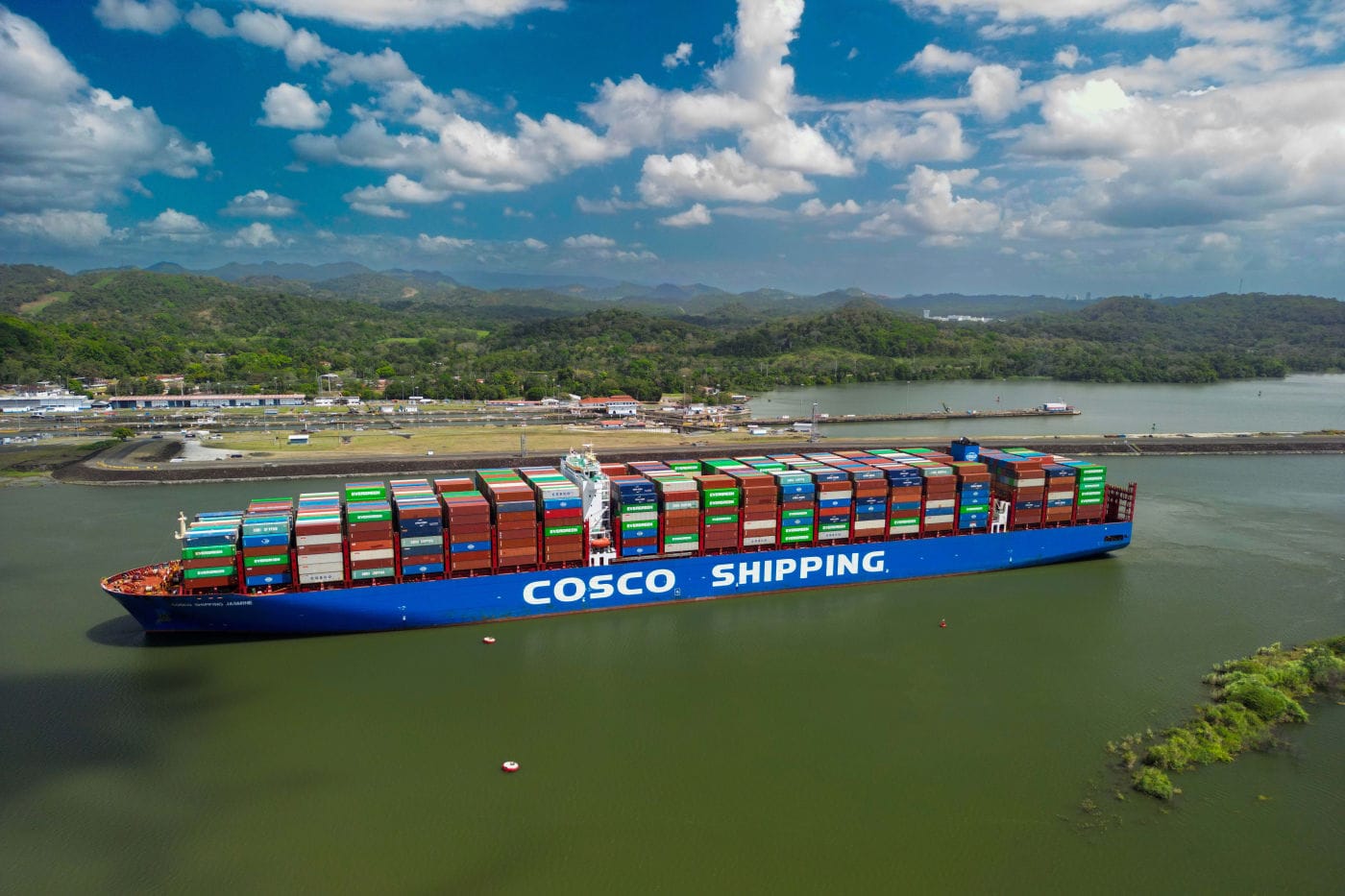
The intervention targets two strategic Panama Canal ports among more than 40 facilities worldwide, highlighting China’s determination to maintain maritime infrastructure control amid intensifying US-China trade tensions. US President Donald Trump has previously criticized Chinese port operations at the canal and threatened to reassert US control over the waterway.
All parties in the Hutchison deal face a delicate balance between commercial interests and geopolitical considerations. The outcome could set precedents for future Chinese involvement in Western infrastructure deals and Beijing’s willingness to use economic coercion for strategic objectives.
Global Macro
China’s BRI activity hits record
Chinese Belt and Road Initiative investment surged to $124 billion across 176 deals in the first half of this year, exceeding 2024′s full-year $122 billion total. The acceleration reflects China’s response to Trump’s tariffs and domestic headwinds, as Chinese companies seek to develop new markets.
BRI partners view deeper Chinese engagement as a hedge against US trade pressures.
Energy projects dominated the mix, with $44 billion of investments including significant oil and gas projects across Africa and Central Asia. Kazakhstan received the largest individual allocation at $23 billion, while Southeast Asia secured $11.3 billion, reflecting Chinese companies’ moves to establish alternative production bases amid US-China tensions.
The record activity coincides with China’s strategic shift from sovereign lending toward foreign direct investment, and a parallel move to push the use of the yuan instead of the US dollar in foreign transactions.
What We’re Reading
Ghana’s anti-graft agency charges petroleum regulator ex-leader in $28mn corruption case (AFP, Barron’s)
France opens door to reparations for colonial massacres in Niger (The Guardian)
Côte d’Ivoire farmers hope tech tempts jaded youth back to fields (Barron’s)
IMF warns Ethiopia over security challenges (Semafor)
Lesotho says US tariffs could destroy its textiles industry (FT)
Kazakhstan considers crypto investments from sovereign funds (TechInAsia)
Cambodia to start military conscription in 2026 (The Diplomat)
LGBTQ-friendly Thailand chases $4.7tn rainbow economy (Nikkei)
Drone attacks hit oil fields in northern Iraq (Bloomberg)
Iran steps up mass deportation of Afghan migrants (FT)
Iran alarmed by Azerbaijan-Syria detente (Radio Free Europe)
Crisis spirals in Syria with Israeli strikes on Damascus (WSJ)
North Macedonia starts construction on country’s biggest wind farm (BalkanInsight)
Economic ties between Ukraine and Czech Republic strengthen despite war (Ukrinform)
Slovakia lifts block on Russia sanctions (Bloomberg)
Hungary’s biggest bank CEO calls for euro adoption and predictability (Bloomberg)
EU alarmed as Serbia prepares for military drills with China (Radio Free Europe)
Bulgaria missed $25bn debt payoff by selling bitcoin in 2018 (Coin Telegraph)
How Turkey transformed its fragile financial position. (The Overshoot)
Russia’s grip weakens in South Caucasus (Radio Free Europe)
Italy and Greece identify Turkish and Russian involvement in growing security threat from North Africa (Politico)
El Salvador rights group flees Bukele’s deepening crackdown (Reuters)
Venezuela releases 10 Americans in exchange for prisoners in El Salvador (WSJ)
Venezuela and Colombia discuss joint border trade zone (Mercopress)
Colombia government weighs tax hikes to fund 2026 budget (Reuters)
Ecuador sparks alarm with controversial law on protected areas (AP)
India ‘in talks with Chile and Peru’ to source critical minerals (Economic Times)
We are committed to providing FMN readers with a free weekly digest of politically unbiased, succinct and clear news and information from frontier and small emerging markets.
Please consider becoming a paid supporter to help cover some of our costs and support our continued development of sharp markets-focused coverage and new informational products. Paid subscribers will also gain exclusive access to our quarterly EM/FM report that aggregates EM insights from 25 major banks, international institutions and consultancies.





